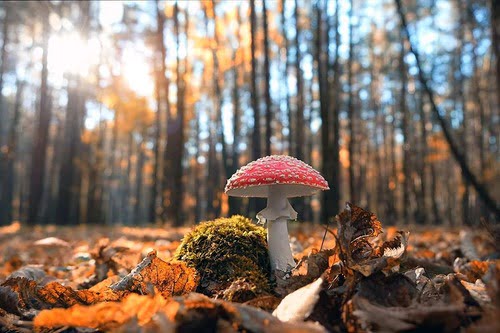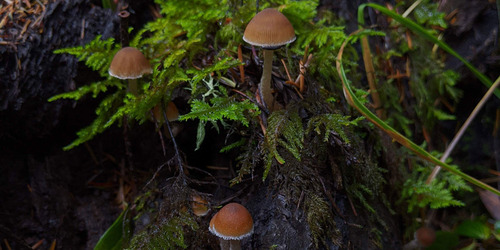Mushrooms, often overlooked and misunderstood, play a crucial role in maintaining the balance and health of our ecosystems. These fascinating organisms serve as nature’s recyclers, decomposing organic matter and unlocking essential nutrients. In this blog post, we will explore the environmental importance of mushrooms, shedding light on their symbiotic relationships, nutrient cycling, soil enrichment, and even their potential role in combating pollution. By understanding their significance, we can better appreciate the vital contributions mushrooms make to the world around us.

Decomposition and Nutrient Cycling
Mushrooms are nature’s decomposers, breaking down dead plant material, fallen leaves, and other organic matter. Through a process called saprotrophic feeding, they extract nutrients from these materials, making them available to other organisms in the ecosystem. This crucial role in decomposition and nutrient cycling helps to maintain soil fertility and supports the growth of other plants and organisms.
Symbiotic Relationships
Many mushrooms form mutually beneficial relationships with other plants, such as trees, through a symbiotic association known as mycorrhiza. Mycorrhizal fungi establish connections with plant roots, forming an intricate network called mycelium. This network facilitates the exchange of nutrients between the fungus and the plant, enhancing the plant’s ability to absorb water, minerals, and organic compounds. In return, the plant provides the fungus with carbohydrates produced through photosynthesis. This symbiotic relationship benefits both parties, contributing to the overall health and resilience of ecosystems.

Soil Enrichment and Restoration
Mushrooms have the remarkable ability to enrich soil by improving its structure and nutrient content. As mushrooms break down organic matter, they release enzymes and acids that break down complex molecules into simpler forms. This process enhances soil fertility and promotes the growth of beneficial microorganisms. Additionally, the mycelium of certain mushrooms acts as a natural binder, helping to prevent soil erosion. Furthermore, some species have the capacity to break down pollutants, including certain pesticides and hydrocarbons, thereby aiding in soil restoration efforts.
Mycoremediation Mushrooms as Pollution Fighters
Mushrooms possess unique properties that make them valuable allies in the fight against pollution. Through a process called mycoremediation, certain mushroom species can absorb and break down contaminants present in the environment. These contaminants include heavy metals, oil spills, and even radioactive substances. Mycelium acts as a natural filter, capturing pollutants and transforming them into less harmful forms. Research into the potential applications of mycoremediation is ongoing, and mushrooms may offer promising solutions for addressing environmental pollution in the future.
Conclusion
In conclusion, mushrooms are far more than just curious organisms that sprout from the ground. They are essential contributors to the health and balance of our ecosystems. From their role in decomposition and nutrient cycling to their symbiotic relationships with plants, soil enrichment capabilities, and potential for pollution remediation, mushrooms demonstrate their incredible environmental importance. As we continue to explore and appreciate the significant role of mushrooms, we gain a deeper understanding of the intricate web of life that sustains our planet. By protecting and preserving these valuable organisms, we can ensure the continued harmony and resilience of our ecosystems for generations to come.